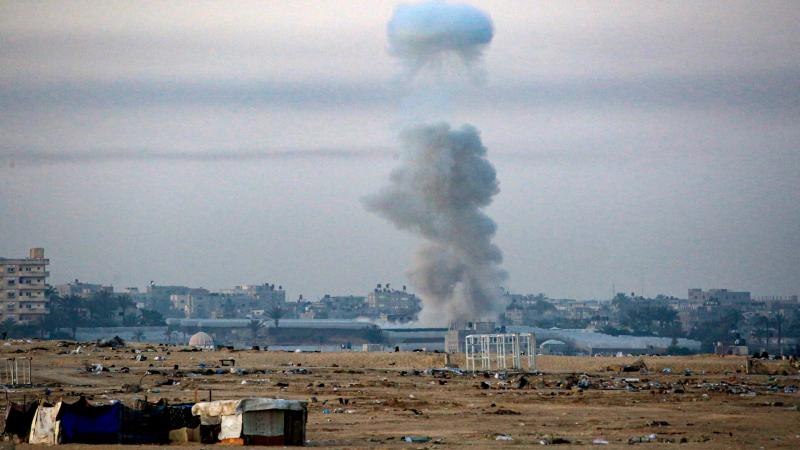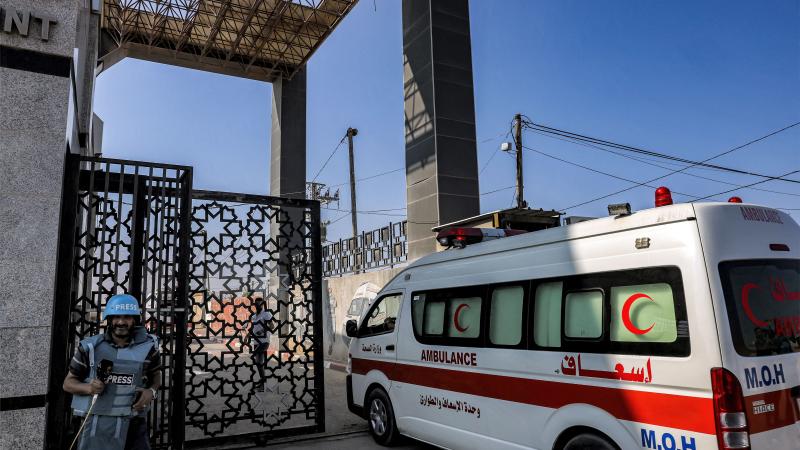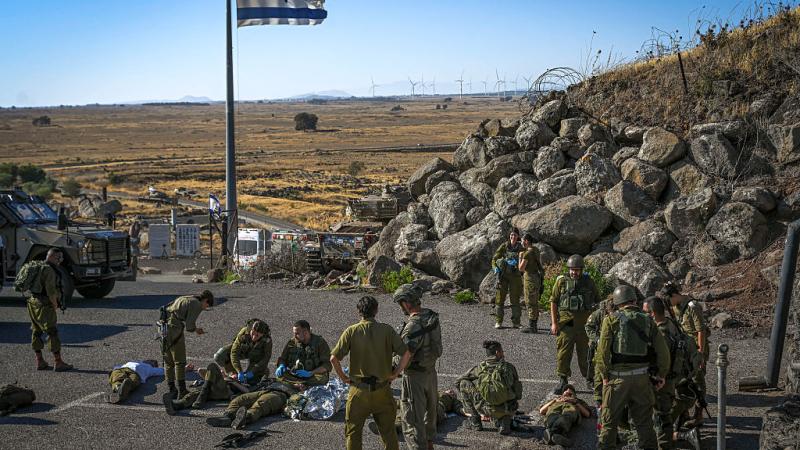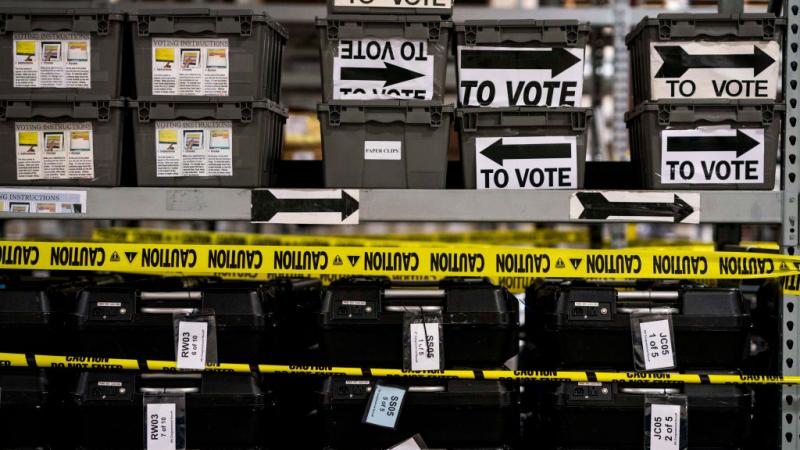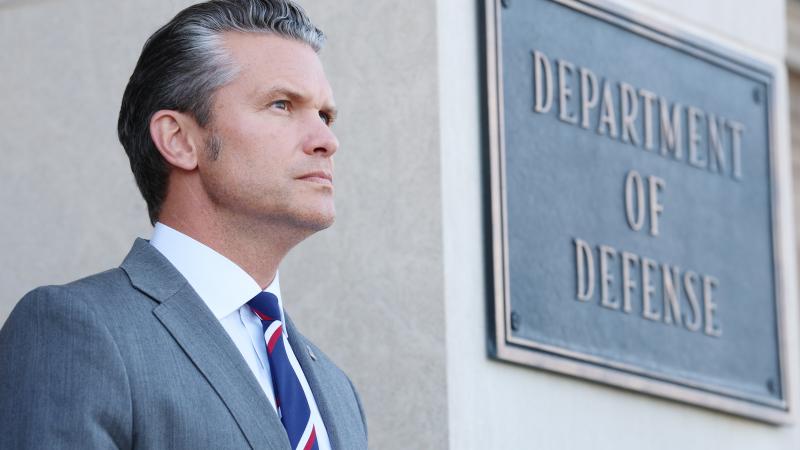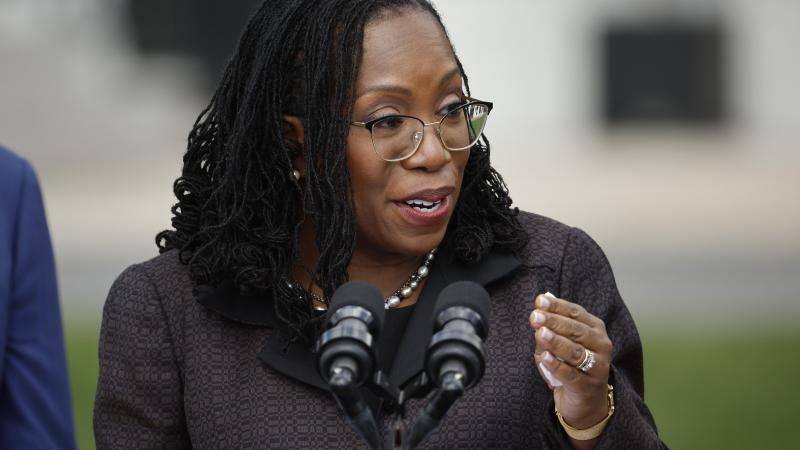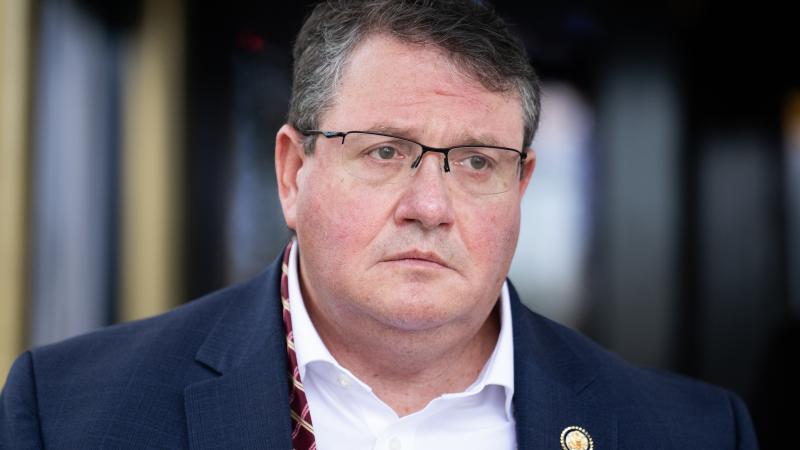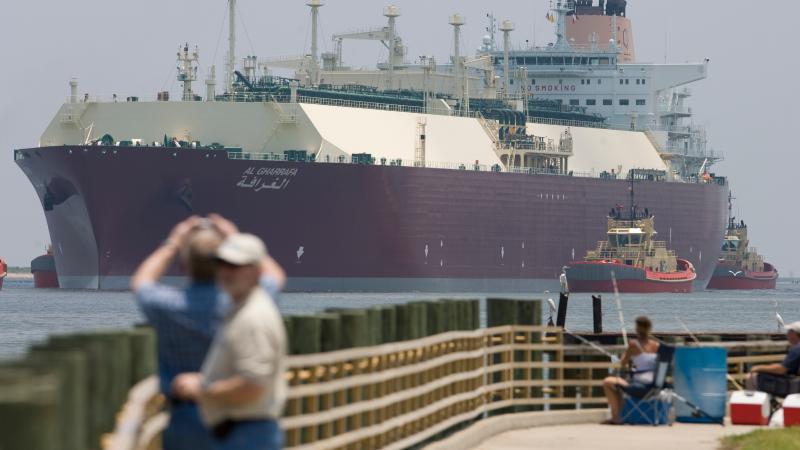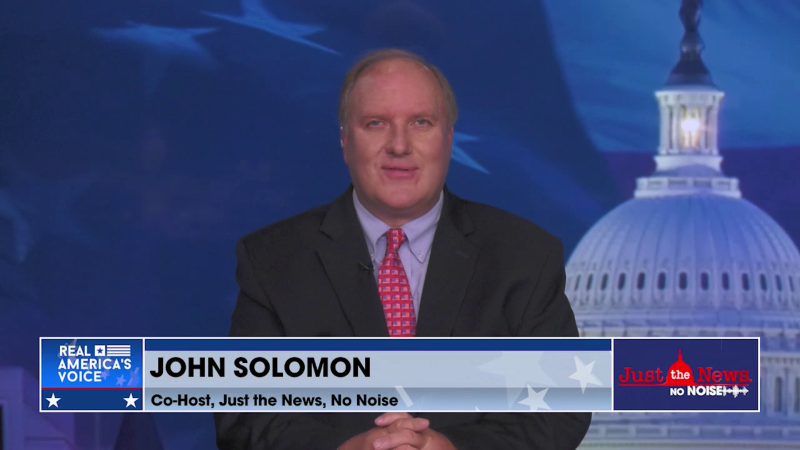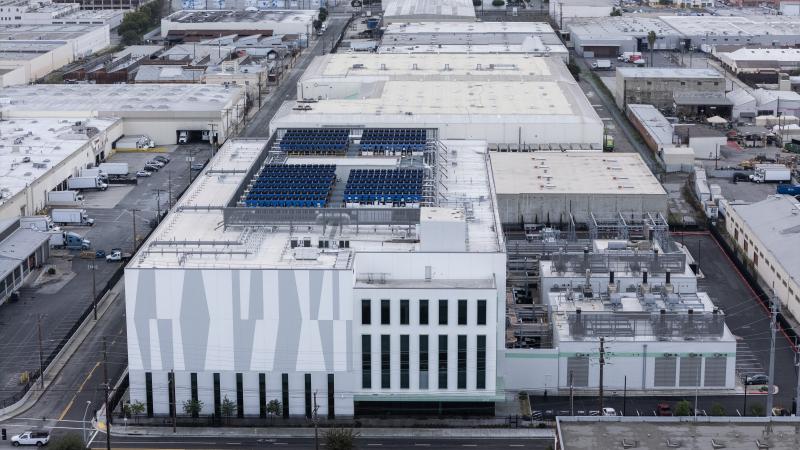Why Trump is betting big on a new prime minister to stabilize Iraq for final U.S. troop pullout
Oil deals, security and maybe even American rice could be on the agenda when Mustafa al-Kadhimi makes his first visit to Washington.
Most Americans will get their first glimpse Thursday of new Iraqi Prime Minister Mustafa al-Kadhimi, the man the Trump administration is betting in a big way will stabilize the war-torn country’s economy and security enough to allow U.S. war troops to come home for good.
The new Iraqi leader will stand shoulder-to-shoulder alongside Trump for his first state visit to Washington, where he is expected to be greeted enthusiastically with a package of humanitarian aid, new U.S. oil projects, and new commitments from neighboring Gulf states designed to resemble a mini-Marshal Project to get Baghdad’s long-struggling economy jump-started.
The economic package is especially crucial after Iraq was struck hard by falling oil prices and the COVID-19 pandemic and nearing a debt limit for borrowing.
The packages put together by Energy Secretary Dan Brouillette, Secretary of State Mike Pompeo and Defense Secretary Mark Esper will be substantial enough to send al-Kadhimi home with a meaningful embrace from Washington, which began a day early when Trump graciously praised the prime minister from the White House briefing podium.
Like Trump so often does, the American president also made clear what he wants in return for the U.S. show of good faith: the ability to deliver on his campaign promise to one-day bring U.S. war troops home after 17 years in Iraq.
“This is a man I get along with very well,” Trump said of al-Kadhimi. A few second later, he added. “We’re getting out rapidly.”
U.S. and Iraqi officials say they don’t expect any timetables to be announced Thursday for the final 5,000 troops to be withdrawn from Iraq, and that the focus will be on creating a self-sustaining security balance led by Iraqi troops and the start of an economic renaissance bolstered by regional partners and American energy companies. A major deal with Chevron to develop an oil field in Iraq was announced Wednesday and more are expected Thursday.
Unlike many of his hapless predecessors, al-Kadhimi doesn’t come to Washington solely desperate for handouts. Sources tell Just the News that al-Khadimi’s team has been discussing a deal to move its substantial rice purchases from other countries to American farmers, a move that would bolster Trump in an election year when U.S. agriculture has been hit hard by the China trade wars.
Likewise, al-Kadhimi has made clear he doesn’t want U.S. troops fighting Iraq’s wars forever. Instead, he would like to build a balanced security force of Iraqi special forces, ground troops and local police from the mish-mash of militias, police and soldiers his country relies on now that U.S. troops mostly eradicated the threat from ISIS.
In private, al-Kadhimi tells friends he compares what the U.S. needs to do in Iraq now to what Americans did in Colombia during the 1980's drug wars: pull back from combat and advise, train, provide intel and equip. Today’s Colombia’s substantial military capabilities allow it to mostly fight its own drug wars. Al-Kadhimi thinks that's possible for Iraq too and is eager to take over day-to-day security operations after the rag-tag Iraq security teams are reshaped. U.S. officials say they are aligned with his vision, and expect fewer militias going forward and more and more competent police in the Iraqi security equation.
Straight forward and westernized, al-Kadhimi’s doesn’t mince words or waste time. He is clear such a transformation will take time but he is willing to create benchmarks to show Iraq is succeeding. The Pentagon and Esper seem fond of the corporate ROI-approach.
Al-Kadhimi also doesn’t dawdle. Since his unlikely rise from scholar and human rights activist to security chief to prime minister, he has brightened Washington’s optimism about Iraq after a decade of many failures and Iranian meddling. While holding power is always tenuous in Baghdad, al-Kadhimi has demonstrated some early mettle after he was chosen by Parliament to fill the vacant job.
He's struck a populist tone that resonates with an Iraqi people wary of war, corruption, and sectarian strife. He freed some political prisoners to popular satisfaction, and scheduled early elections to show he wants to be elected by the people and not hold power by parliamentary fiat.
Al-Kadhimi also addressed the 500-pound gorilla in the region, traveling early to Tehran to tell Iran’s leaders he no longer wanted Iraq to be treated as a backyard meddling ground. He told the Iranians he expected Tehran-Baghdad to restore equal state-to-state relations after a decade or more of Iranians using militias to wreak havoc in its neighbor’s affairs.
While the message was delivered, Iraq and the U.S. also know Iran is waiting for the outcome of the U.S. election to see whether Trump’s harder-line approach to Tehran or Joe Biden’s appeasement strategy will be the direction of the next four years.
On Sunday, al-Kadhimi also struck a deal with the semi-autonomous Kurdish Regional Government to honor a long-delayed budget revenue sharing scheme that will allow revenues to flow both ways. The Kurds are key to any success al-Kadhimi will have normalizing the economy, and the new deal was cheered at home and abroad.
U.S. officials told Just the News the weekend deal could open up a larger oil-sharing arrangement between the Kurdish province and Bagdad’s central government, a move that could jumpstart Iraq’s macro-economy. Such a plan was first devised during the end of the Obama administration before it was derailed by ISIS. Brouillette, the U.S. energy secretary, appears to have dusted off the playbook in recent weeks.
Wasting no time after the KRG deal, al-Kadhimi also spoke to Saudi Arabia’s crown prince shortly before his Trump visit, forging new commitments and relations with a Gulf state critical to regional peace. The Saudis along with UAE and Bahrain are working with the Trump administration to build new economic relations with Iraq, creating a regional solution for growth rather than the traditional top-down nation-building approach imposed by the U.S. in the past.
The Gulf states are also being organized to help build a new power grid for Iraq, which has struggled with electricity supplies during a long hot summer.
Outside experts applaud the approach on new Iraq-Gulf state alliances to counter Iran and bolster Baghdad's economy.
"The interests of Iraq and the Sunni-Arab states are mutual: sovereignty for Iraq and a reduction in foreign influence," said Maya Karlin, an analyst for the Center for Security Policy. "Shoring up the Iraqi economy will reduce the effectiveness of Iran’s meddling and empower al-Khadimi’s government to achieve sovereignty. Ultimately, Iraqi sovereignty is inextricably linked to its economic independence."
While optimistic, al-Kadhimi has not struck Americans thus far as a pie-in-the-sky dreamer.
“After his time as intelligence chief, Mustafa understands the cold hard realities of the region and approaches them with pragmatism. He expects setbacks and has a plan for them. He is playing strategic chess to stay ahead of the sort of blows that have felled Iraq in the recent past,” a senior U.S. official told Just the News. “Iran knows where he stands. The Gulf states know where he stands. We know where he stands. He’s direct and fast moving. He has a plan. And he has our support. That’s the best recipe we’ve had for Iraq in a long time.”
One of those setbacks historically has been rampant corruption in Iraq. A week before his visit, The New York Times ran a lengthy magazine piece on the pay-to-play culture that dominates Iraq, from government to business.
Al-Kadhimi has told Americans it’s not something that will change overnight but he believes the more U.S. companies come into Iraq and show one can be profitable with honest business tactics, the more it will rub off. And he knows that dynamic only works if American companies feel safe to operate in Iraq.
Such thinking has won early confidence from the Trump administration, which is trusting but verifying al-Kadhimi’s every move.
Vice President Mike Pence preceded Trump’s embrace Wednesday with his own shout out to Iraq in a recent interview with Just the News. "When I visited Iraq last November, I learned firsthand the aspirations of the Iraqi people for a rebuilt and stable nation," Pence said. "Prime Minister al-Kadhimi is determined to implement reforms that reflect these aspirations, and the United States supports a strong, sovereign, and prosperous Iraq."
That message will be front and center again Thursday: America’s aspirations for a troop withdrawal and Iraq’s for economic and security autonomy are intertwined in a big bet on al-Kadhimi.

